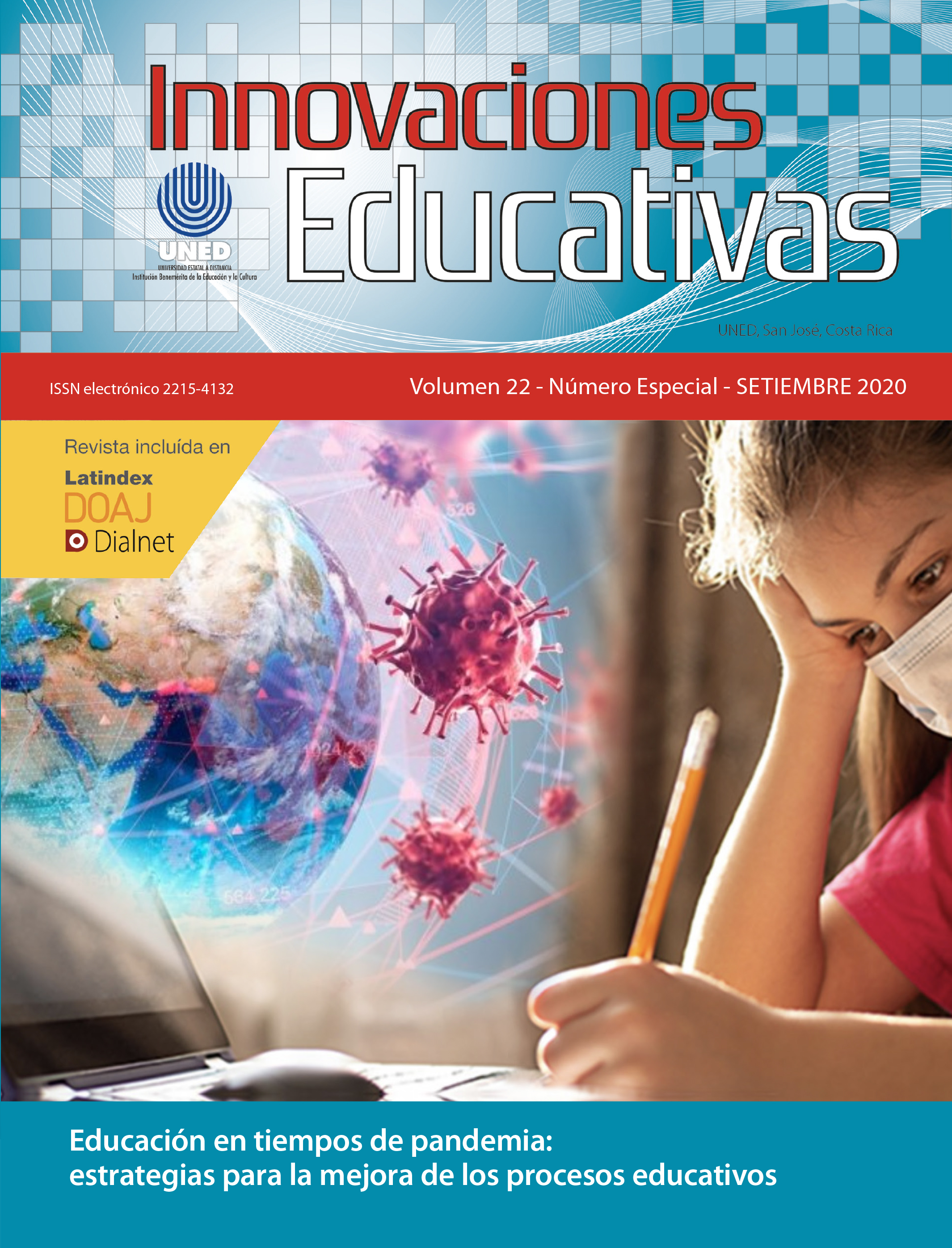Educational transformation time
DOI:
https://doi.org/10.22458/ie.v22iEspecial.3249Keywords:
Online education, hybrid models, educational transformation, COVID-19, educational leadership, teacher trainingAbstract
The pandemic caused by the virus responsible for COVID-19 has put educational systems around the world in check. Its unpredictable nature implied that virtual solutions had to be embraced in order to overcome moments of complete lockdown.
This situation has evidenced all the different problems that afflict education and that these cannot be solved with the adopted emergency solutions. These are times to make the best of this crisis to reformulate many of the aspects of nowadays education systems to make them better and transform them if similar threats happen again. For this, technology must be an ally. This article reflects the need to design hybrid educational models that allow a fluent transition between face-to-face moments and virtual moments, especially if they are not programmed. Besides, a comprehensive vision of the school is necessary, including analog and digital contexts, suitable leadership for the digital age we are living in, and initial teacher training in the above-mentioned contexts.
References
Beatty, B. (2020). Can HyFlex Options Support Students in the Midst of Uncertainty? EDUCAUSE Review, May 26, 2020. https://er.educause.edu/blogs/2020/5/can-hyflex-options-support-students-in-the-midst-of-uncertainty#:~:text=HyFlex%20courses%2C%20on%20the%20other,given%20the%20public%20health%20uncertainty.
Botturi, L. (2019). Digital and media literacy in pre-service teacher education. Nordic Journal of Digital Literacy, 14(3-4), 147-163. https://doi.org/10.18261/issn.1891-943x-2019-03-04-05
Brown, C., Czerniewicz, L., Mayisela, T & Huang, C. (2016). A Practice Based Approach to Theorising Digital Education Leadership. Vancouver, BC: Commonwealth of Learning. http://hdl.handle.net/11599/2542
Burgess, S. & Sievertsen, H.H. (2020). Schools, skills, and learning: The impact of COVID-19 on education. https://voxeu.org/article/impact-covid-19-education
Carretero, S., Vuorikari, R., & Punie, Y. (2017). DigComp 2.1. The Digital Competence Framework for Citizens. Luxembourg: Publications Office of the European Union.
CEPAL-UNESCO (2020). La educación en tiempos de la pandemia de COVID-19. https://www.cepal.org/es/publicaciones/45904-la-educacion-tiempos-la-pandemia-covid-19
Darling-Hammond, L. (2010). Teacher education and the American future. Journal of Teacher Education, 61 (1-2). https://doi.org/10.1177/0022487109348024
EU Commission (2016). A new skills agenda for Europe. Working together to strengthen human capital, employability and competitiveness. http://eur-lex.europa.eu/legal-content/EN/TXT/HTML/?uri=CELEX:52016DC0381&from=EN
González-Sanmamed, M., Sangrà, A., Estévez, I. & Souto, A. (2018). Ecologías de aprendizaje en la Era Digital: Desafíos para la Educación Superior. Publicaciones. 48(1), 11-38. DOI: http://dx.doi.org/10.30827/publicaciones.v48i1.7329.
Guitert, M., Romeu, T. & Baztàn, P. (2017). Conceptual framework on digital competences in primary and secondary schools in Europe. Proceedings of ICERI 2017, Valencia, Spain, 5081–5090.
Keefe, E.S. (2020). Learning to Practice Digitally: Advancing Preservice Teachers’ Preparation via Virtual Teaching and Coaching. Journal of Technology and Teacher Education, 28(2), 223-232. https://www.learntechlib.org/primary/p/216145/.
Sangrà, A., Raffaghelli, J. & Guitert, M. (2019). Learning ecologies through a lens: Ontological, methodological and applicative issues. A systematic review of the literature. British Journal of Educational Technology (BJET), 50(4), 1619-1638, https://doi.org/10.1111/bjet.12795
UNESCO (2011). Digital Literacy in Education. Policy Brief. Paris: UNESCO.

